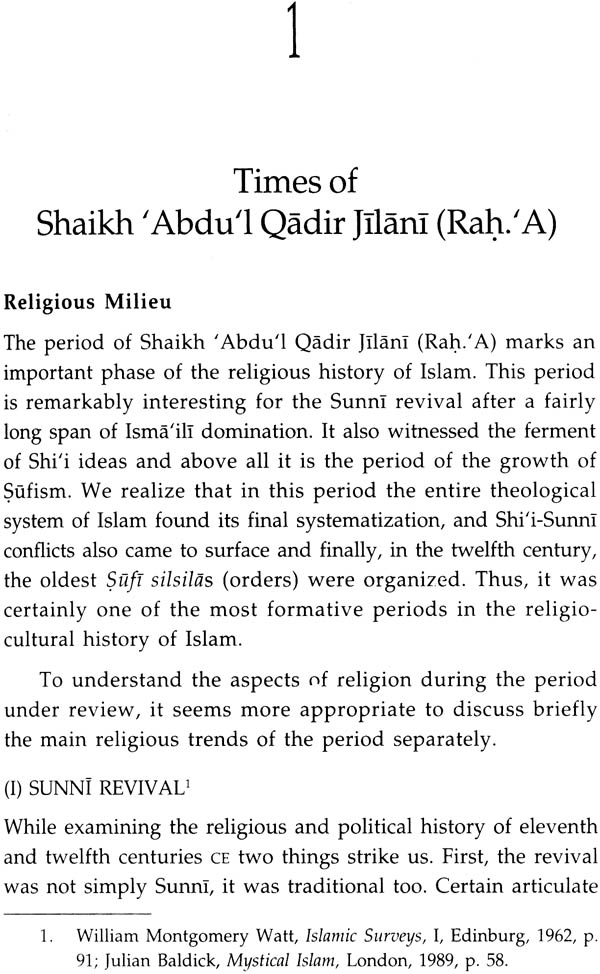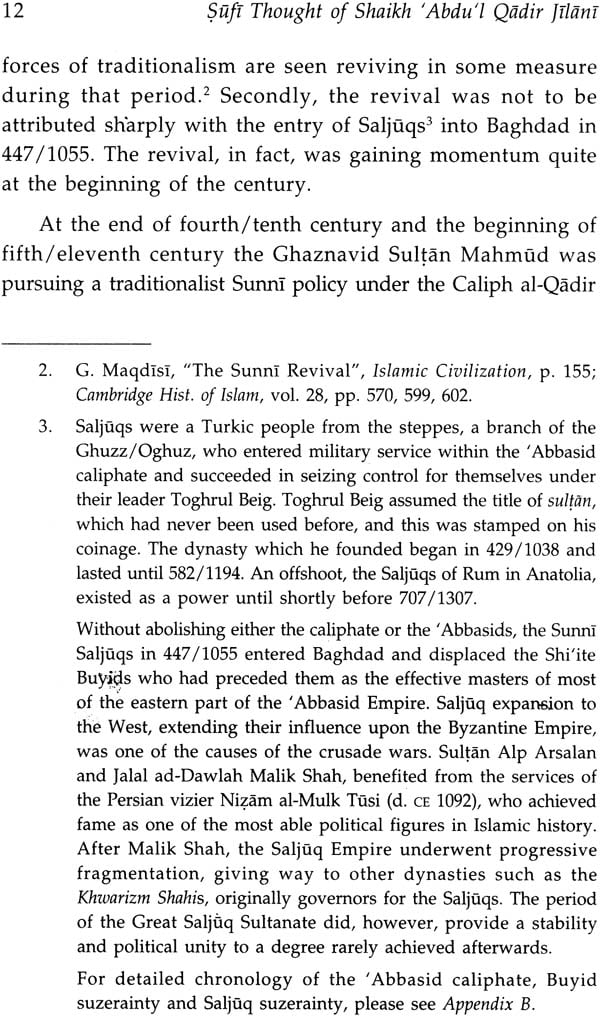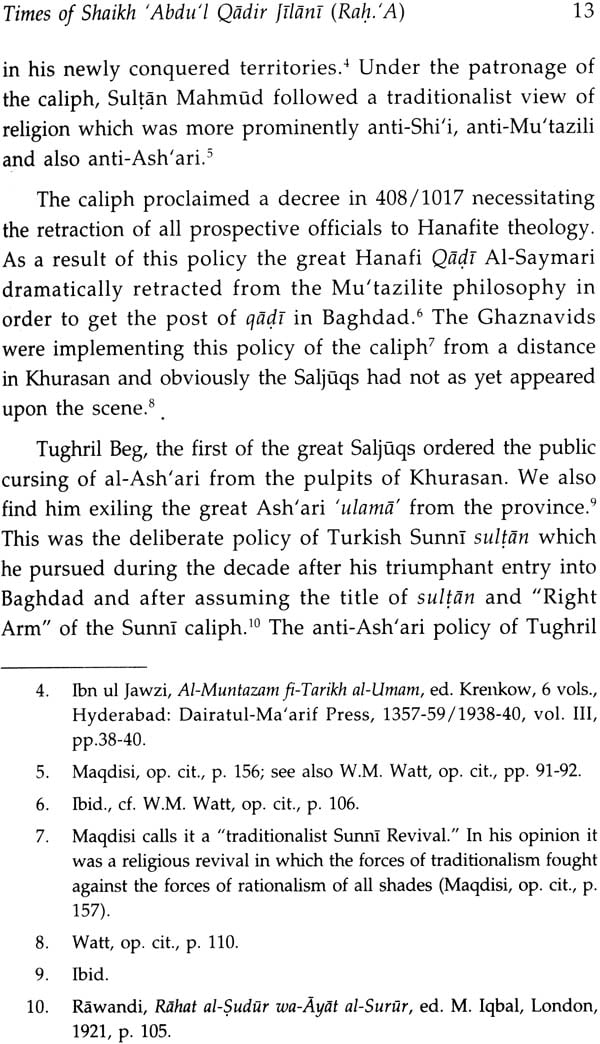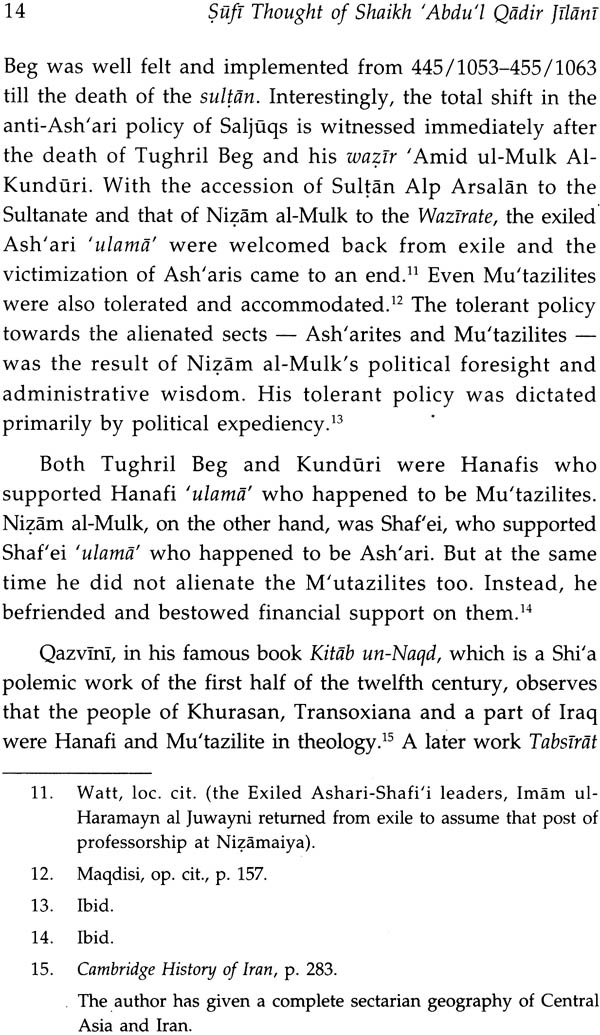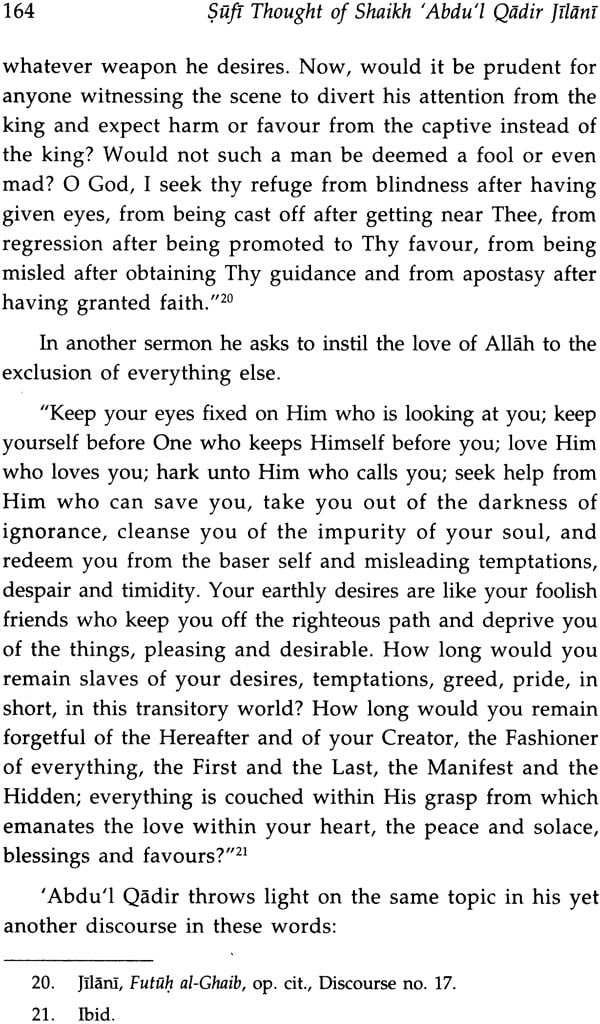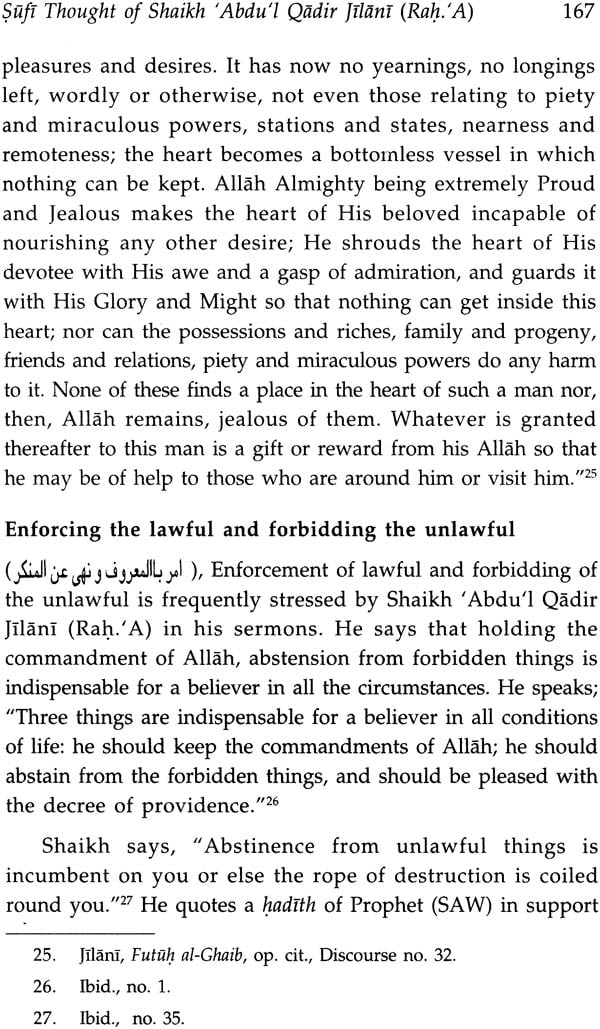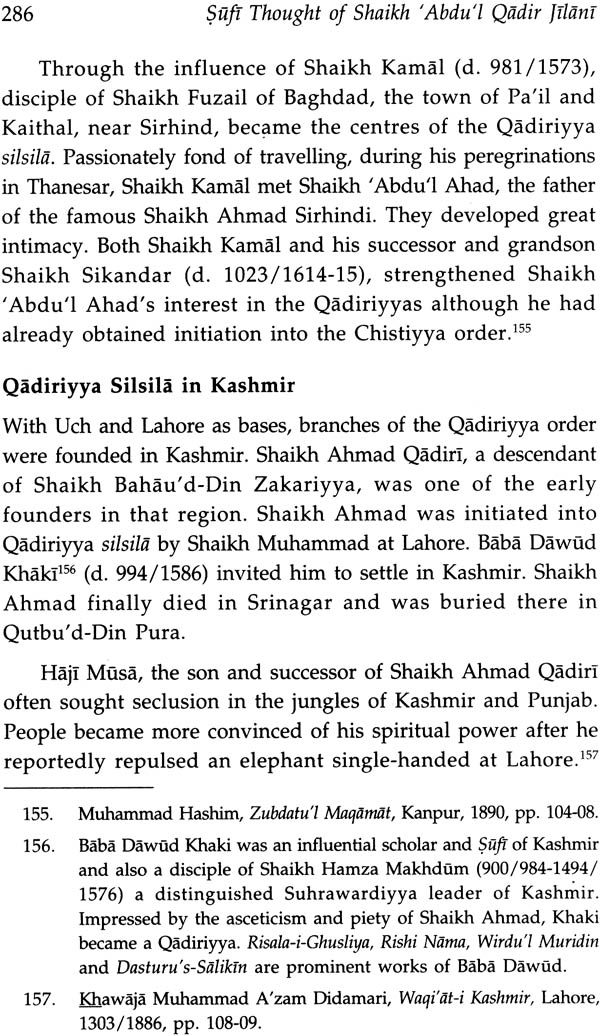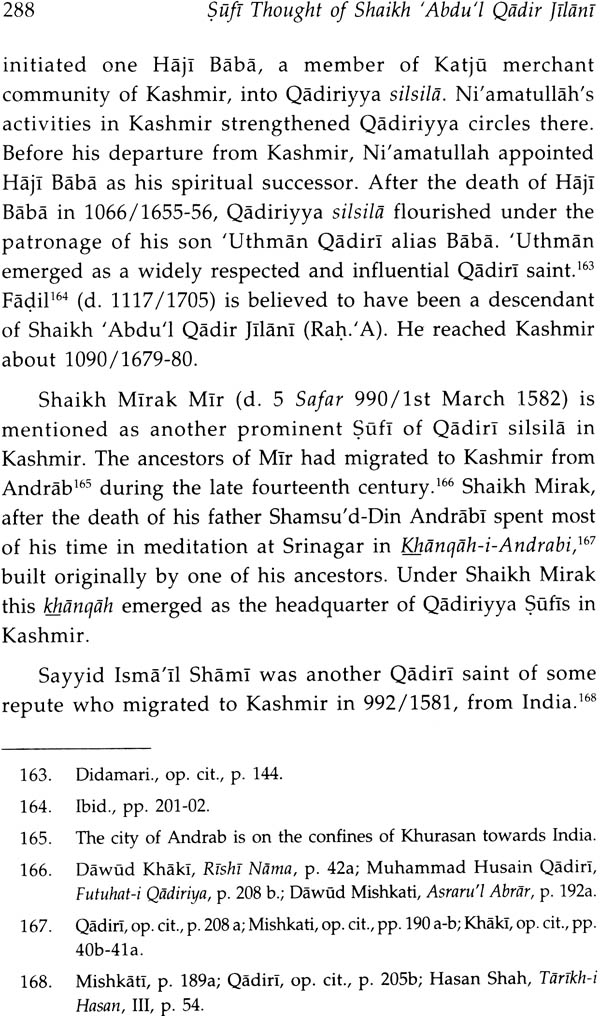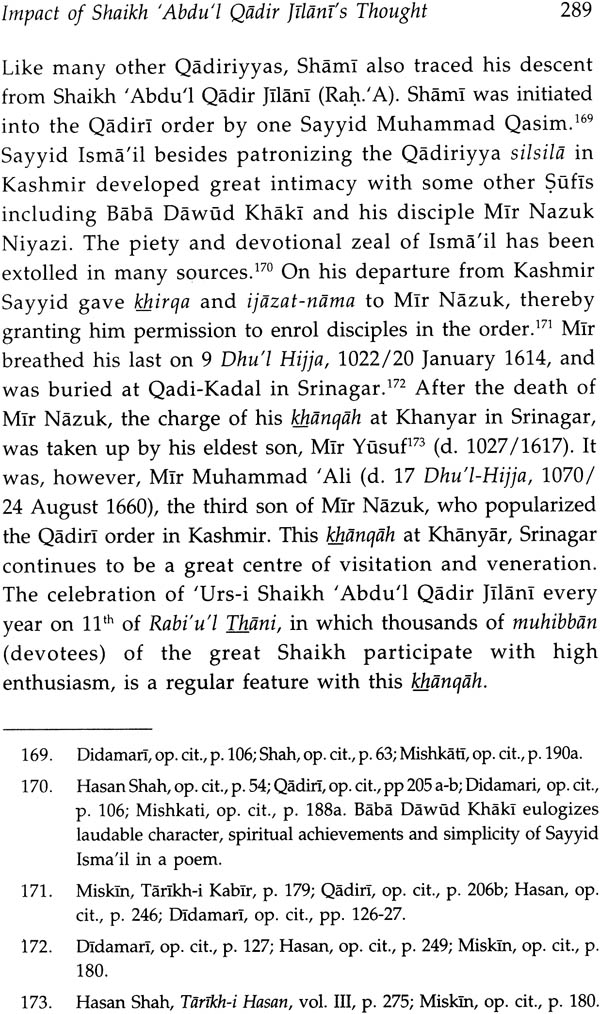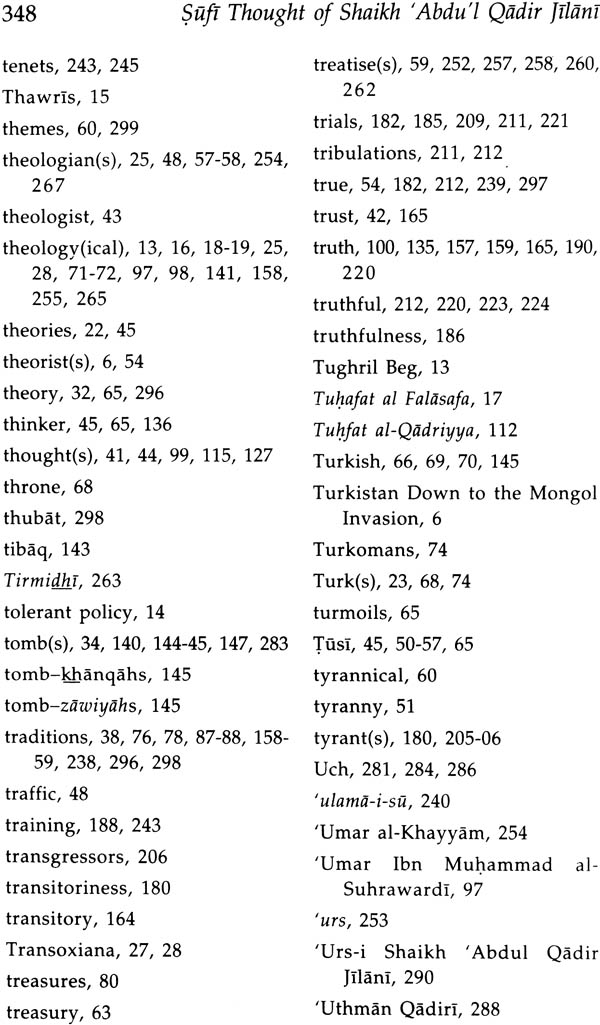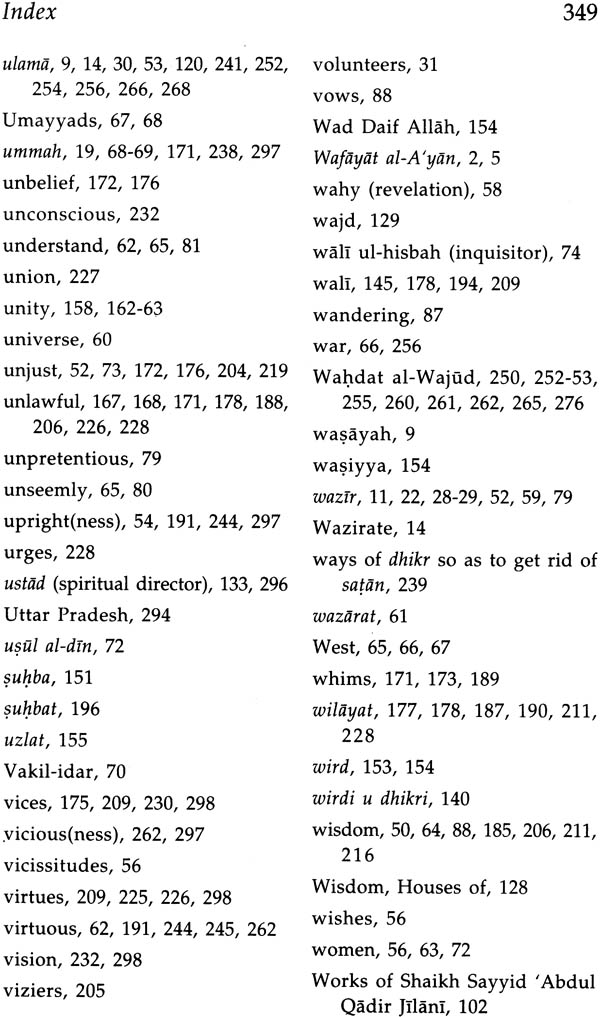
Sufi Thought of Shaikh Sayyid ‘Abdul Qadir Jilani and its Impact on the Indian Subcontinent
Book Specification
| Item Code: | IHL716 |
| Author: | Manzoor Ahmad Bhat |
| Publisher: | D. K. Printworld Pvt. Ltd. |
| Language: | English |
| Edition: | 2010 |
| ISBN: | 9788124605455 |
| Pages: | 350 |
| Cover: | Hardcover |
| Other Details | 9.0 inch X 5.8 inch |
| Weight | 660 gm |
Book Description
The volume mainly deals with the Sufi thought of one of the most revered and influential Sufis, Shaikh ’Abdul Qadir Jilani (eleventh-twelfth century), particularly its impact on the culture and tradition of the Indian subcontinent. It presents a historical perspective on the religious-political theorists of the time and pattern of administration then. In an interesting study, it deals with the life and works of the saint and emergence of Sufi thought and organization of Sufi silsilas.
The focus is on the original utterances, sermons and discourses of the scholar- preacher and interpretation of the most recurring themes in Jilani’s vocabulary in a simple manner. The themes relate to unity of the Divine Being, enforcement of the lawful, love of humanity, polytheism, the spiritual struggle in man and different ahwal (states) and maqamat (stations) of the Sufi thought. It observes that Jilani has not deviated from the fundamental teachings of the Quran and the Sunnah. It discusses the impact of his teachings in terms of the emergence of various Qadiriyya centres in the subcontinent and flourishing of his thought after his time.
The volume will be useful to scholars of Islamic studies and general readers interested in understanding the evolution of Islamic thought in the Indian subcontinent.
Manzoor Ahmad Bhat is B.Sc., B.Ed., M.A., M.Phil., PhD. and has qualified N.E.T. (conducted by U.G.C., India), and is working as senior Assistant Professor in 5.H. Institute of Islamic Studies, University of Kashmir. His fields of specialization are Tasawwuf (sufism), Ethics, Islamic Da’wah and History of Kashmir (medieval period). In addition to a number of research articles published in well-reputed academic and research journals, the author has two more books to his credit; The Pious Caliphate: A Study 0f Hadrat ‘Ali (Rad. A) and Teaching 0fEngZish in Schools. The author is also associate editor of Insight Islamicas, an academic and research journal of international repute. He has actively participated in a number of national and international seminars, has attended various orientation and refresher courses and is a member of various academic and research committees and boards.
Tasawwuf (Sufism) as an Islamic science is being studied both by Muslim and non-Muslim scholars and the Orientalists with great interest and curiosity, yet with diverse objectives in their minds. Some regard it as mysticism, a few others categorize it as a form of ruhbaniyat (monasticism), while some treat it as spirituality or ’Irfan.
In fact, tasawwuf (Sufism) is a mediator between shari’ at and haqiqat. Practising shari’ at in the most desired form that could guide a believer properly to understand the haqiqat Ultimate Reality) in its totality is tasawwuf. It can also be termed as the esoteric aspect of the teachings of Islam.
In this book, which is a humble attempt to study the Sufi thought of Shaikh Sayyid ’Abdu’l Qadir Jilani (Rah.A), highly revered and the most influential Sufi and Preacher of his times, Sir endeavour has been to provide a historical perspective while exploring the most recurring themes of his thought, in the light of Jilani’s original works. An attempt has also been made to provide an insight into the impact of the Shaikh’s thought on the Indian subcontinent and the subsequent emergence of various Qadiriyya centres in that area.
The objective analysis leads to this conclusion that the Shaikh has not deviated even in the least from the fundamental teachings of the Qur’an and the Sunnah of the Prophet (S.A.W).
This work, originally a doctoral thesis submitted to the University of Kashmir would not have been in the form as it is now, in the absence of the erudite guidance of Prof. M. Ishaq Khan, ex-Dean Academics, University of Kashmir, and Prof. Naseem Ahmad Shah, Director, SH. Institute of Islamic Studies, University of Kashmir.
I express my deep sense of gratitude to my senior colleagues and scholars with whom I had useful discussion during my research work. The librarians of all those libraries which I visited during my research work deserve my thanks.
Last, but not least, thanks to all my family members who proved a source of inspiration for me and had to suffer a lot during the course of my studies.
May Allah approve this little and humble effort and prove it a means of salvation for me here and in the akhirah. May He forgive me for my shortcomings and lacuna, if any, committed in this work.
| Preface | v | |
| Introduction | 1 | |
| 1. | Times of Shaikh ‘Abdu’l Qadir Jilani (Rah. ‘A) | 11 |
| 2. | Life of Shaikh Sayyid ‘Abdu’l Qadir Jilani (R.A.): A Contemporaneous Appraisal | 75 |
| 3. | Origin and Development of Tasawwuf | 115 |
| 4. | Sufi Thought of Shaikh ‘Abdu’l Qadir Jilani (Rah. ‘A) | 157 |
| 5. | Impact of Shaikh ‘Abdu’l Qadir Jilani’s Thought on the Subcontinent | 243 |
| Conclusion | 295 | |
| Appendix A | 301 | |
| Appendix B | 305 | |
| Bibliography | 307 | |
| Index | 321 |
